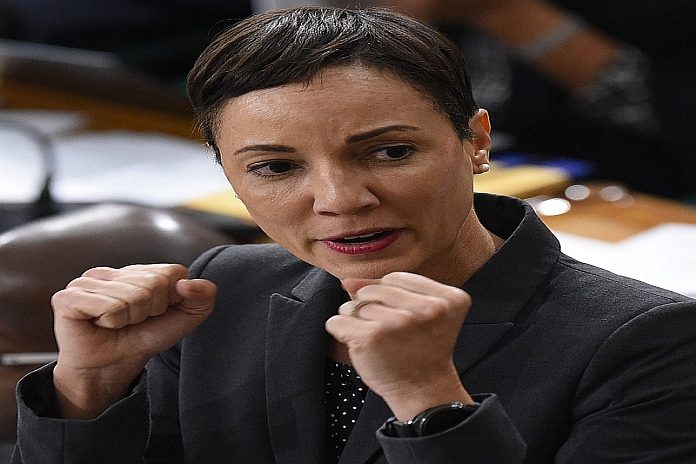By Alecia Smith
KINGSTON, Jamaica (JIS) – The government of Jamaica continues to put robust measures in place to safeguard the country’s financial system against money laundering schemes and the financing of terrorism, according to leader of government business in the upper house, Senator Kamina Johnson Smith, affirming “strategies include strengthening the legislative framework dealing with these matters.”
“Getting to the root of crime means that you have to get to the root of the financing of organised crime. (Therefore), our law enforcement efforts need to be strong and they need to be supported by a strong legislative framework,” she said while piloting three anti-money laundering and counter financing of terrorism companion Bills in the Senate on Friday, October 25.
The following Bills were introduced and approved during the sitting:
- Terrorism Prevention (Amendment) Act, 2019; United Nations (UN) Security Council Resolutions Implementation (Amendment) Act 2019; and Proceeds of Crime (Amendment) Act (POCA) 2019.
Senator Smith, who is also minister of foreign affairs and foreign trade, explained that POCA, 2019 provides primarily for the investigation, identification, and recovery of the proceeds of crime and the amendments seek, broadly, to strengthen the existing regime and that, “ the amendments to the Terrorism Prevention Act will ensure alignment with the provisions of the POCA, and that the country is compliant with international obligations as they relate to terrorism. The changes to the UN Security Council Resolutions Implementation Act are in adherence to measures to counter money-laundering and the financing of terrorism, while also in line with POCA.”
“While each Bill has its specific context and focus, amendments to all three are intended to ensure Jamaica’s compliance with the Financial Action Task Force (FATF) requirements as well as anti-money laundering, counter-financing of terrorism requirements, on which the country is assessed from time to time”, Smith noted.
The FAFT is an international inter-governmental body established in 1989 with the objective to set standards and promote effective implementation of legal, regulatory and operational measures for combating money laundering, terrorist financing and other related threats to the integrity of the international financial system.
Senator Smith informed [ the Senate ] that Jamaica’s most recent assessment took place in June 2015, and the resulting Mutual Evaluation Report, which was issued in January 2017 “contained certain findings and priority actions and a comprehensive list of recommended actions.”
“Jamaica was found to be partially compliant or non-compliant with several of the FATF recommendations…We must enact the (pieces of) legislation…to address these gaps by the end of this month to avoid being placed in the FATF’s follow-up process. This follow-up process is a specific designation, which would have us seen as a high-risk financial jurisdiction and this, of course, must be avoided at all costs,” adding that “passage of the laws allow Jamaica to seek a re-rating within the FATF’s May 2020 plenary.”
“Were we to have an unfavourable designation or not be in a position to seek a re-rating, this would, of course, affect investment, it would affect trade, it would affect the transactional cost between our banks and international banks. The point of correspondent banking risks and the de-risking that is taking place within the international financial system would also have us in an unfavourable position. It would intensify the risks in that regard,” she said.
The Terrorism Prevention (Amendment) Act, 2019, and POCA 2019 were passed with two amendments each; while the UN Security Council Resolutions Implementation (Amendment) Act was approved without amendment.





